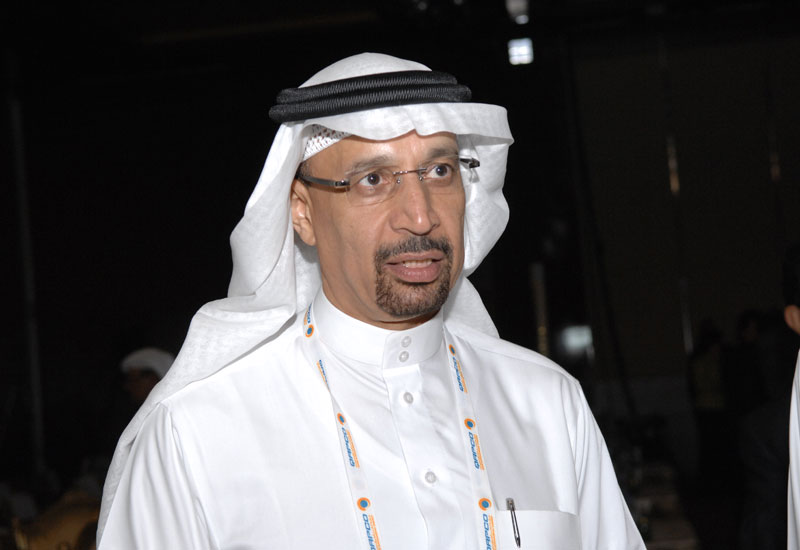Khalid A. Al-Falih, Saudi Aramco President & CEO, has announced a new initiative to “unlock the company’s full human potential” of Aramco’s activities.
The bold new plan will see Aramco transform from an oil & gas company to “a fully integrated global energy enterprise”, and investment in the Kingdom’s youth to make this happen.
In a speech a speech last Thursday 19 May at the annual Saudi Aramco Management Development Seminar Participants Dinner, Washington DC, Al-Falih spoke warmly of the “longstanding ties of friendship and cooperation that Saudi Aramco has in this great country, and indeed those between the United States and Saudi Arabia”, and characterised the relationship as one of “mutually beneficial interdependence”.
Citing the early role oil pioneers had in establishing the nascent infrastructure in the Kingdom “before corporate social responsibility had a name” Al-Falih remarked that “some of these relationships with American firms and institutions are nearly as old as the modern Kingdom itself”.
Al-Falih set the stage for a new stage in Aramco’s development, in which changes to the “nature of our business portfolio and our expanded operational profile” will be most visible, but the most fundamental changes will be in broadening and deepening the involvement of the Kingdom’s burgeoning young population in the ongoing development of its largest company.
This will involve a transformation from an emphasis on physical infrastructure to human capital, in what Al-Falih has called the ‘Accelerated Transformation Program’.
A key part of the program will be in diversifying investment. Upstream, Aramco will extend their activities “to frontier areas within the Kingdom, including the deep waters of the Red Sea, and develop new nonconventional gas resources, including tight gas and shale gas”, announced Al-Falih. Downstream, Aramco is “pressing ahead with a massive expansion of our global refining capacity, and continuing with refining and chemicals integration and expansion at facilities here in the US, Korea and China.”
Developing Saudi expertise within the company as important as new projects. Anticipating that the current generation of young Saudis will demand a “stimulating work environment, professional challenges, mentoring, true empowerment, and meaningful opportunities” as they enter the workplace, Al-Falih’s announcement is in no small part an attempt to assuage any unrest among the Kingdom’s youth which has caused transformational change elsewhere.
Al-Falih was keen to emphasise the strength of existing educational connections between Saudi and the United States, and is clearly expects stronger ties in a bid to improve the educational profile of Saudis. Al-Falih announced the establishment of an Aramco “Young Leaders Advisory Board” to advise senior leadership on the generational handover of the company.
Today there are nearly 45,000 Saudi students enrolled in US universities, studying in all 50 states, 1,000 of whom are sponsored by Aramco. Al-Falih clearly signaled that these numbers are set to rise. Aramco’s ambitions reflect recent announcements by the Saudi government of dramatically increased investments in infrastructure, education and welfare following unrest throughout the region.
The Arab Spring, while unmentioned by Al-Falih, is clearly influencing Saudi social policy and Aramco’s development strategy into the medium and long term. Al-Falih reported “some of our front-line supervisors tell me our new employees are impatient and restless, and difficult to direct or control—something people say about Generation Y the world over.”
Al-Falih sees this generation as an opportunity as well as a challenge: “I tell them I see these young people as active, ambitious, capable and eager to make a difference—in addition to being more knowledgeable about the world than I certainly was at their age.”
While mentioning the need for the Kingdom’s “Generation Y” to take on the responsibilities and attitudes that have served Aramco well since it’s inception, Al-Faklih said that “more importantly, we must proactively prepare Saudi Aramco for these young people by rethinking the way the company engages with them as well as the stimuli it provides to its people.”
More generally, while Al-Falih emphasised the importance of Saudi’s “power to provide” in stabilizing oil markets and that, 25 years from now, “oil will still account for the largest portion of the global energy supply mix”, Aramco – and Saudi Arabia generally – are keen to avoid complacency.
As the world adjusts to new demands for energy arising from developing economies, new countries will take more central roles on the world stage. Technological change is accelerating development, and environmental pressures are becoming more acute as global demand for higher living standards increases.
“Such challenges and opportunities are not met simply through production capacity increases or the development of another set of megaprojects; rather, they require a set of fundamental changes in the way we do business, in the expectations we have from our people, and in the expectations they in turn have from our company” said Al-Falih.
In closing, Al-Falih said “the challenges and opportunities ahead are many, they are massive, and they are multifaceted—but frankly, that’s just the way we like them at Saudi Aramco.”



